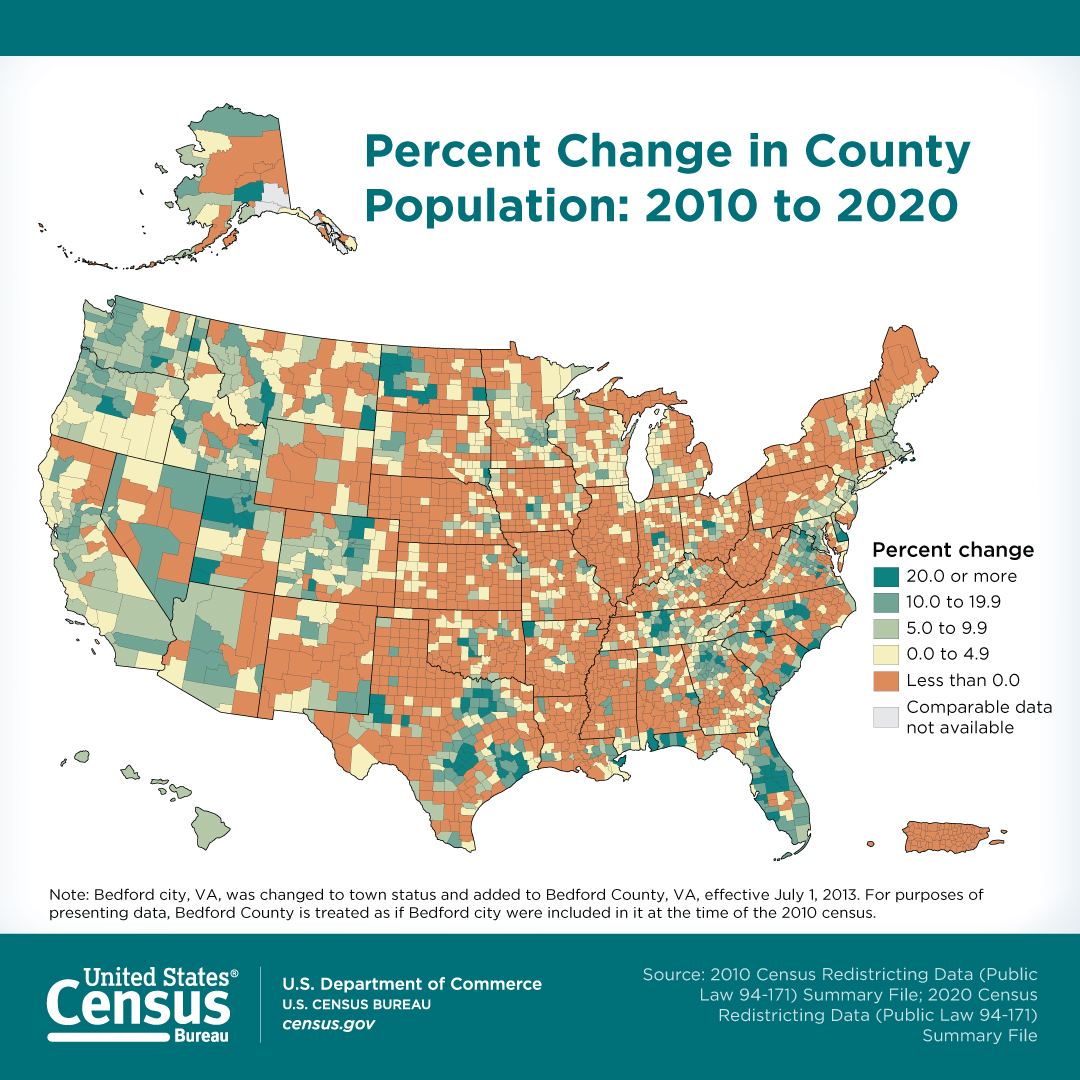
The U.S. Constitution requires a count every 10 years of every person living in the United States.
Census results determine how the federal government allocates more than $800 billion each year for services that communities rely on. Census data also determine representation in Congress and the Electoral College, as well as in state and local governments.
If the census misses people, undercounted communities won't get fair funding for critical programs, and officials won't have the reliable information they need to make decisions.
Beginning in early 2020, the Census Bureau mailed every household in the US an invitation to respond to the census, including a new option to respond online.
--Information from the American Library Association at ala.org/census
The below information was retrieved from the United States Census Bureau.
This Summit on “Census Bureau Data for Everyone” is a FREE Virtual Webinar. Learn about how your responses to Census Bureau surveys are used to create publicly available data products. Explore data tools on census.gov and discover how you can utilize those tools to help transform your communities.
The following data visualizations were created by the United States Census Bureau after analyzing the data from the 2020 Census Data Products. These are examples of the information that the U.S. Census can provide to individuals and organizations.


